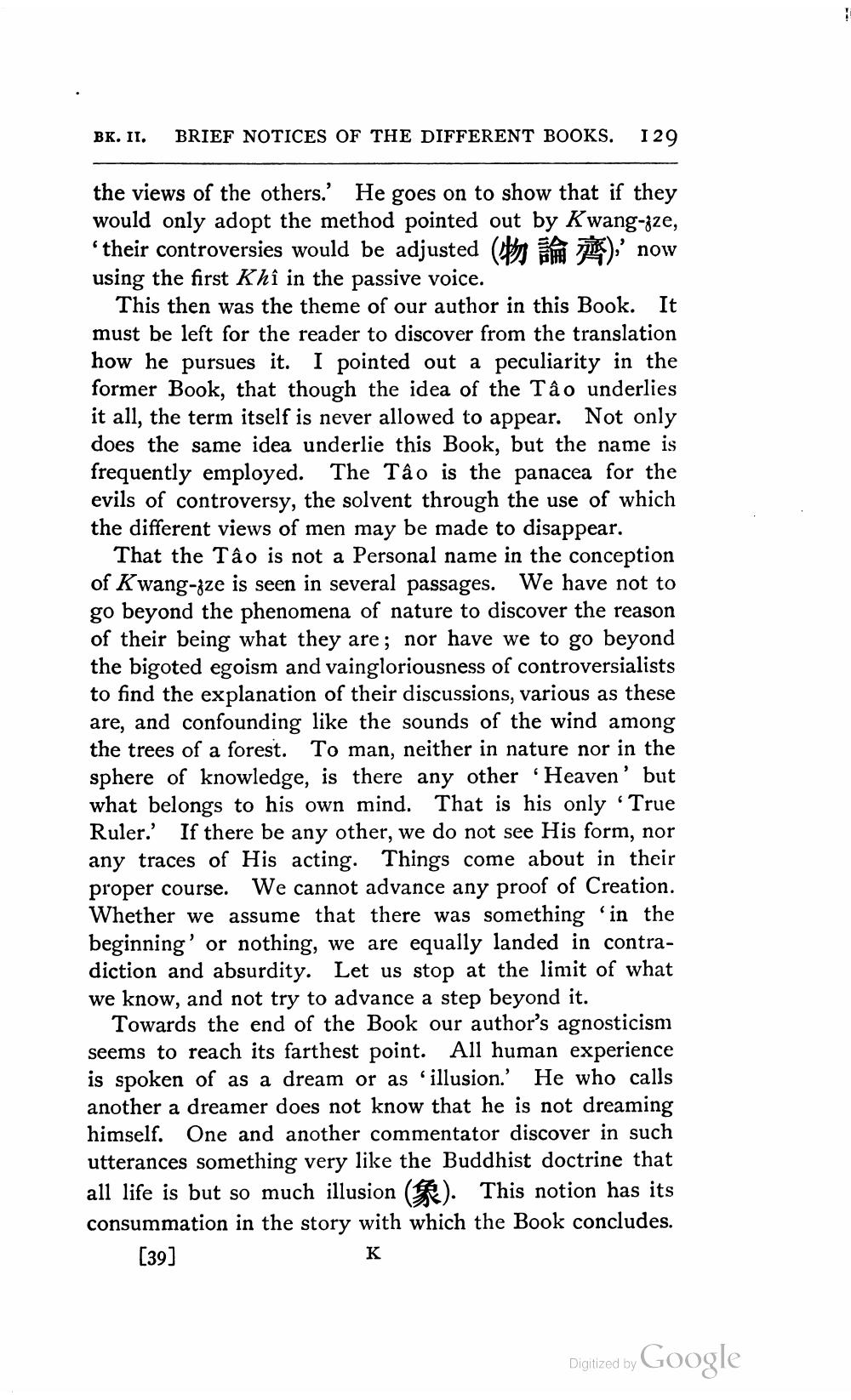________________
BK. II. BRIEF NOTICES OF THE DIFFERENT BOOKS. 129
the views of the others.' He goes on to show that if they would only adopt the method pointed out by Kwang-jze, 'their controversies would be adjusted lys ), now using the first Khî in the passive voice.
This then was the theme of our author in this Book. It must be left for the reader to discover from the translation how he pursues it. I pointed out a peculiarity in the former Book, that though the idea of the Tâo underlies it all, the term itself is never allowed to appear. Not only does the same idea underlie this Book, but the name is frequently employed. The Tâo is the panacea for the evils of controversy, the solvent through the use of which the different views of men may be made to disappear.
That the Tâo is not a Personal name in the conception of Kwang-zze is seen in several passages. We have not to go beyond the phenomena of nature to discover the reason of their being what they are; nor have we to go beyond the bigoted egoism and vaingloriousness of controversialists to find the explanation of their discussions, various as these are, and confounding like the sounds of the wind among the trees of a forest. To man, neither in nature nor in the sphere of knowledge, is there any other 'Heaven' but what belongs to his own mind. That is his only "True Ruler.' If there be any other, we do not see His form, nor any traces of His acting. Things come about in their proper course. We cannot advance any proof of Creation. Whether we assume that there was something in the beginning' or nothing, we are equally landed in contradiction and absurdity. Let us stop at the limit of what we know, and not try to advance a step beyond it.
Towards the end of the Book our author's agnosticism seems to reach its farthest point. All human experience is spoken of as a dream or as 'illusion.' He who calls another a dreamer does not know that he is not dreaming himself. One and another commentator discover in such utterances something very like the Buddhist doctrine that all life is but so much illusion ( ). This notion has its consummation in the story with which the Book concludes.
[39]
Digitized by Google




